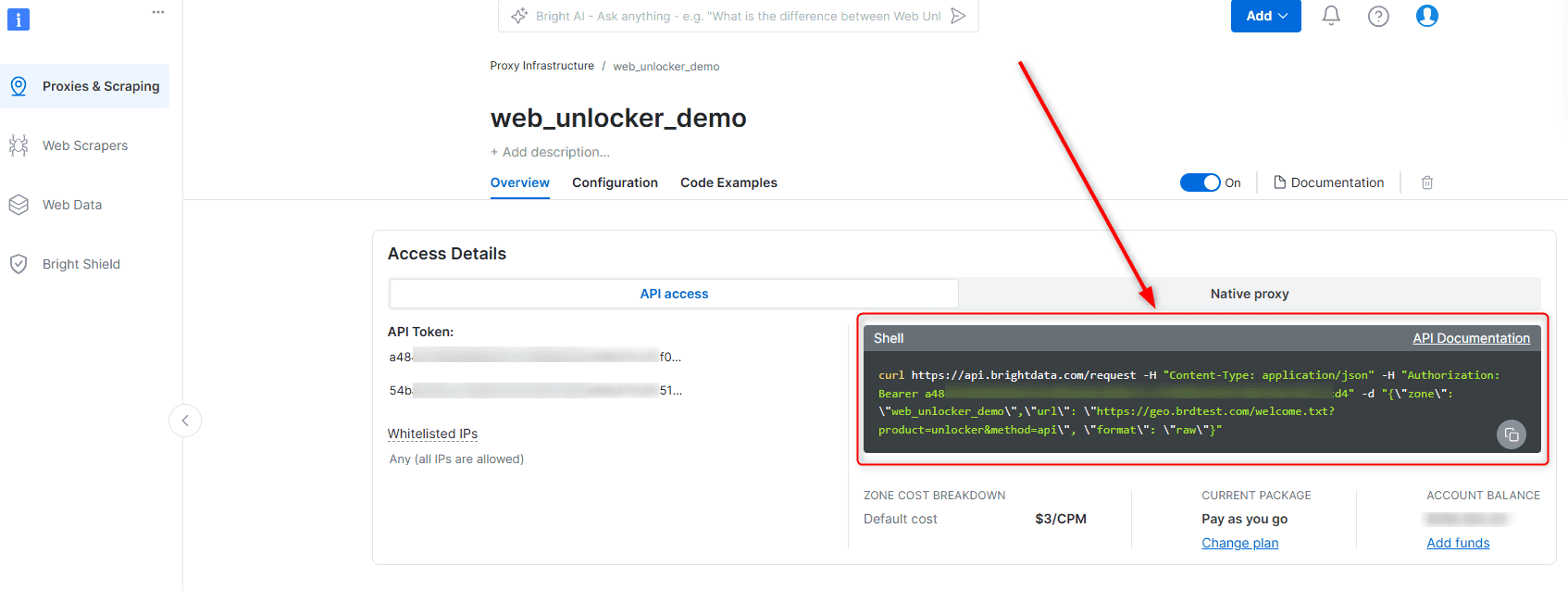Bright Data Changes Scraper Prices, Calls Web Unlocker an API
The provider’s products now cost either 50% more or 50% less, depending on which you use.
- Published:
Prices Changes
The rates for Web Unlocker and SERP API, Bright Data’s proxy-like scrapers, have been cut by 50%. On the other hand, the beta-level Scraper APIs, which scrape and structure individual websites, will now cost 50% more. As a result, customers will get a unified line-up when it comes to price:
| Plan | Web Unlocker, SERP API (old) | Web Scraper APIs (old) | New rates |
| PAYG | $3 | $1 | $1.5 |
| $499 | $2.55 | $0.85 | $1.27 |
| $999 | $2.25 | $0.75 | $1.12 |
| $1,999 | $2.10 | $0.70 | $1.05 |
The change will make Bright Data’s scrapers significantly more competitive in an already very cutthroat market. However, the pricing model remains rigid, which makes Bright Data economical primarily for harder to reach and JavaScript-dependent websites.
Web Unlocker as an API
For the past few years, Web Unlocker has been Bright Data’s poster-child scraper product. It was specifically made as an upsell to the provider’s proxy networks, taking the same proxy-like integration format and sharing most of the same conventions. Web Unlocker inspired a whole category of unblocker products that stood alongside web scraping APIs – sometimes with little technical justification.
Lately, however, Bright Data has been making significant changes to its prized product. The provider started off by exposing more parameters, such as device selection. It then introduced an alternative integration method: a REST API. And beginning with 2025, Web Unlocker has turned into Web Unlocker API, with API integration as the recommended method for using it.

For now, Bright Data’s implementation is still rather basic, with most parameters remaining in the username. That said, it’s already become the default option in the dashboard.

We don’t know what exactly prompted this change, but the ground below proxy APIs has been shaky for a while. SOAX did away with proxy-like integration, and Nimble discontinued its Unblocker Proxy altogether last autumn.
Maybe proxy-like scrapers don’t have as much demand compared to more standard API integration methods – at least not enough to form a separate product category? Quite a few APIs are able to integrate as proxies already.